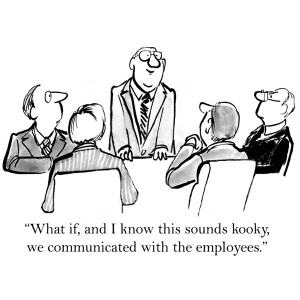Weekly team meetings taking away your lifeforce? Just try this.
Just because team meetings can be a soulless drain of vital lifeforce doesn’t mean they are not important.
For many people, the conditions for work being a satisfying experience is that we are ‘alone together’. Oxymoron fans are digging it the most, but what I’m getting at is that most of us like some sort of autonomy/authority/control over what we do and how we do it, and at the same time, most of us need some sort of connection to other people to feel OK.
Work lets us do both.
And in most organisations, meetings are the primary forum in which we have the chance to form a connection as a group, meaning the chance to satisfy one of the fundamental conditions for work being OK. Or better.
Which is why they are important. And why it’s worth trying something new if your meetings are driving you into the gutter of existential despair.
So try lean coffee!
Lean coffee (which is a trademarked thing) is a ‘structured, but agenda-less meeting‘ in the words you’ll find on the website itself: http://leancoffee.org/ . Better yet, check out co-originator Jim Benson (he of personal kanban fame) talking about it for 3:37 on YouTube right here. Read more…





